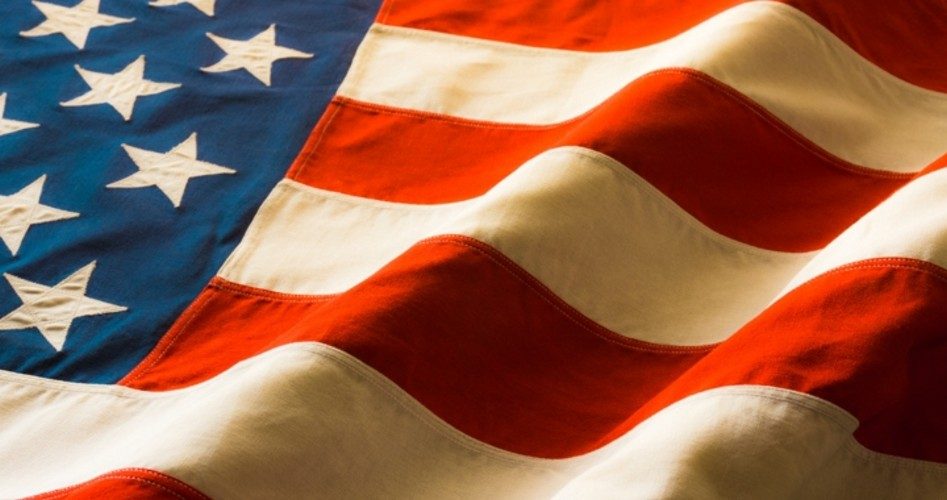
After The Washington Examiner reported that administrators at Ripon College in Wisconsin told the school’s chapter of The Young America’s Foundation they could not conduct its annual September 11 memorial “because it may offend Muslim students,” administrators protested that they were not banning the group from posting a 9/11 poster, but simply had an “intellectual exchange” with leaders of a campus Young Americans for Freedom (YAF) chapter, advising them that the poster could be viewed as “biased” against Muslim students.
Young Americans for Freedom was founded in 1960, but upon merger with another conservative student group has also been called the Young America’s Foundation. According to its website, YAF “helps students across the country properly remember the anniversary of the September 11 terrorist attacks through our 9-11: Never Forget Project. This program began in 2003 when we discovered that most college campuses were either completely ignoring the anniversary or holding a politically correct event instead.”
YAF suggests remembering the victims of 9/11 by establishing a flag memorial, holding a moment of silence or prayer, and by bringing a speaker to the campus.
Another aspect of the memorial is a poster developed by YAF. It includes the words “Never Forget,” surrounded by eight pictures, including a depiction of the World Trade Center on fire during the 2001 attack. Other photographs are of other terrorist attacks, dating back to the taking of American hostages in Iran in 1979, and continuing with other Islamic-associated terrorist incidents over the years. These other photographs include the bombing of the barracks of U.S. Marines in 1983; a photo of the U.S.S. Cole, which was suicide-bombed in 2000; a photo of reporter Daniel Pearl, who was beheaded by Muslims terrorists in 2002; a depiction of the murder of Ambassador Christopher Stevens in Libya in 2012; a photo of journalist James Foley, who was beheaded by an ISIS soldier in 2014; and a photograph of the aftermath of the Orlando night club massacre in 2016.
According to YAF, they were told by college administrators that, except for one picture, the other photographs in the poster had nothing to do with 9/11, and did not “add to the conversation about 9/11.” Instead, YAF said it was told that the objections raised by unidentified parties “to the administration and the bias incident team about the environment that [the poster] creates … That because of the focus, in this case relentlessly on one religious organization, one religious group, one religious identity — in associating that one religious identity with terrorist attacks which go back far before 9/11 and after 9/11 — creates for some students here an environment which they feel like they are not able to learn.”
Ripon spokeswoman Melissa Anderson confirmed Friday that the college had concerns about the posters. “They were too graphic and only depicted one ethnicity in all the pictures.” (Actually, that is not true, as Iranians are a different ethnicity from Arabs, although the photographs did focus on the terrorist acts against Americans by one religious group.) Of course, there have been no terrorist attacks upon America by Buddhists, Hindus, and Baptists in the past generation.
Spencer Brown, a national spokesman for YAF, wrote in a YAF article, “Ripon administrators will not allow the Ripon Young Americans for Freedom to hang the flyers as part of their work to remember the victims of September 11 or other victims of radical Islamist terrorism.”
Ripon officials denied that a ban on the poster had been enacted. “Ripon does not have a posting policy, and thus never requires prior approval for posting,” Anderson told Newsweek magazine. She did admit, however, that last year’s posters “led to a vigorous debate on campus, including counter postings,” and a response from college officials by delegating its “Bias Incident Team” to investigate the issue. Anderson added that the Bias Incident Team has “no authority to require any sort of actions. Their only role is to investigate concerns and report finding to the appropriate vice-president for action. In this case, that report did not result in any action.”
Anderson said that YAF had requested the meeting with school officials, in reaction to the investigation. While the college insists that they did not ban the posters, they did admit that there have conversations with YAF students to “help them understand there may be biases involved in the posters,” and urged them to develop a different poster about terrorism that would not be “biased.”
Brown noted that he did not use the word “ban” in his report. It is clear that Ripon officials did not want the posters used by YAF this year. Brown stood by his reporting, arguing that it was based upon an audio recording of the meeting with the Bias Team, school administrators, and YAF leaders.
“The school seems to be attempting to change the narrative by attacking aggregate coverage that used the word ‘ban’ (not in my original report),” Brown told the Milwaukee Journal-Sentinel. “In doing so, Ripon is trying to pretend that the spirit of their bias team’s ruling and factually-incorrect lecture in the meeting wasn’t intended to dissuade students from displaying the posters this year, when it clearly was.”
This is a tactic used by many college administrators, Brown added. “Too often in our work with students across the country we at YAF see administrators use this same tactic to shame students into shying away from their planned activities.”
What is clear is that this incident is an illustration that the Christian and conservative viewpoint on America’s college campuses is under assault, whether through outright banning of conservative voices, or by pressure tactics.
Photo: Ron_Thomas/iStock/Getty Images Plus

